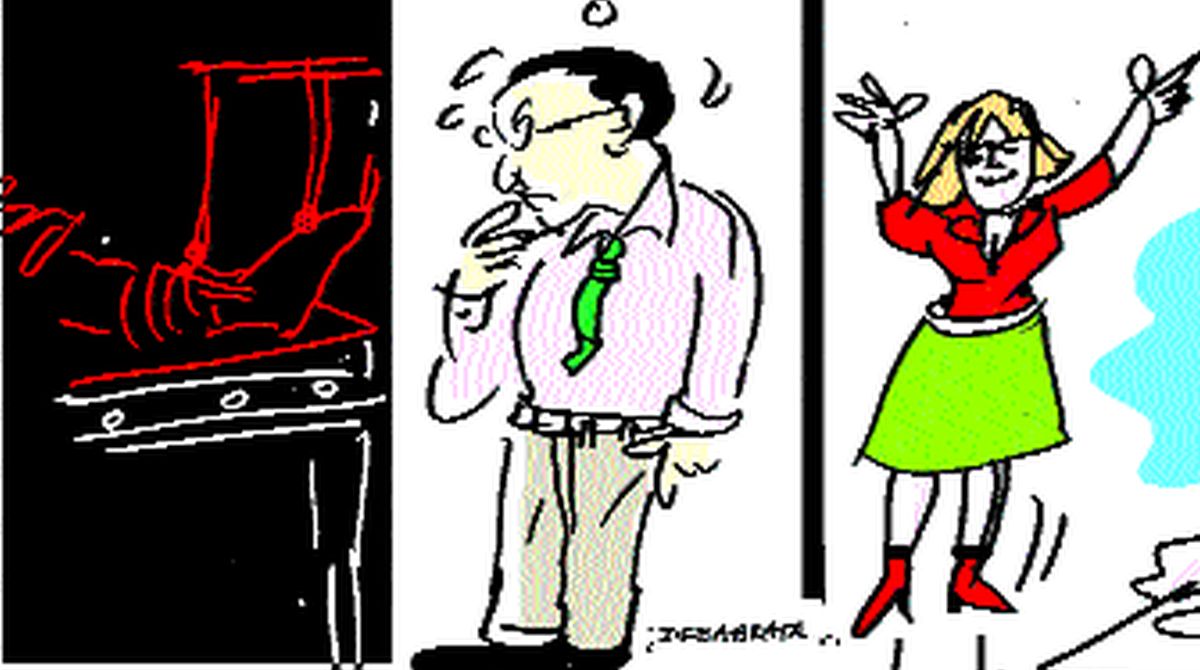Study reveals novel therapeutic target for traumatic brain injury
Health outcomes vary greatly among the approximately 1.5 million Americans who survive a traumatic brain injury each year.

She had fallen from a height of thirty feet and died, said the initial report. The first part was correct, the second part wasn’t. It was my year as the US Consul in Kathmandu. As a critically injured American overseas, travelling alone, she was my responsibility.
I took a large utility vehicle and drove pell-mell to the Teaching Hospital’s emergency ward. Judy was in a bad shape. She had fallen, thanks to a broken railing, from the third floor of her hotel. A leg and a hip had been badly injured, and she had contusion in her head, with a seriously inflamed eye. Doctors had given her pain-killers but could not proceed further without x-rays. The hospital’s machine wasn’t working.
The only other local hospital that had one was closed for the day. I drove there, with Judy stretched out on the backseat. I speak Nepali and in fifteen minutes I had found out where the man in charge of the x-ray section lived. I knocked on his door.
Advertisement
He was drinking tea with his wife. He came out with a cup in hand.
“I want to show you something,” I said, “please come with me.” Nonplussed, he followed.
I took him to the car, pointed to the woman inside. “She is only 25, her whole life ahead of her. She will die or become a cripple – unless you help me. Please help me with an x-ray.”
“But I need two other people to run the machine!”
“You have me. I will get another person. We will do whatever you ask us to do.”
I got another person from the street by paying cash and we had the x-ray report.
We returned to Teaching Hospital, got two doctors and started the long process of treatment. Judy had no medical insurance and scant cash. For the hospital, the Consulate was the guarantor. I persuaded the two specialists not to charge for the moment. But the nurses had to be paid. I filled up a form, put Judy’s thumbprint as she was in no condition to sign, and took out a loan from the US Government.
The hospital director mentioned that a famous US neurosurgeon would visit Nepal shortly. I called him brazenly in Kentucky and invited him for dinner. I picked him at the airport, took him home for a late supper and told him frankly I needed his advice on Judy. He surprised me by saying, “Let’s do it.” It was around midnight and we got in by pretending there was an emergency. The surgeon saw Judy, went through her medical dossier and prepared a detailed strategy for two months.
The next day, while in a formal meeting, the Prime Minister privately asked me about Judy, for her case had featured in the newspaper. When I said that the surgeon had suggested Judy’s optical nerve had sustained some damage, he said he would ask his nephew, the best eye specialist in the country, to check on her. He came next day, along with his wife, a gynecologist, and they both examined Judy and suggested a course of treatment. When I broached the subject of a fee, they said his uncle had specifically forbidden him from accepting any.
Judy had a respiratory problem and needed an inhaler. We didn’t find one in Kathmandu. I worried and fretted and then had an idea. It was the height of the tourist season, and, when I drove to the international airport, I found the departure lounge full. I had taken the airport manager’s permission and stood on a stool near the exit door. I had everybody’s attention when I said that the tourists could return to their countries and buy inhalers again, but a young woman desperately needed one and I would be grateful if anybody was prepared to spare one. I had three!
The money situation was getting acute. I spoke in two local churches and quickly raised a collection. This led a young businessman to organise a fundraising dinner at his hotel and help me with a sizable check.
After two months of painful treatment, Judy was in a condition to return home to the US for further therapy. I persuaded Lufthansa to give her the gift of a first-class seat. With permission from the airport authorities, I drove Judy, ensconced in her wheelchair, right next to the plane. Then an airlines official, an ex-wrestler and a mountain of a man, simply picked her up like a doll and took her up to her seat. Judy, partly recovered and still in pain, would at least be with her family. I wished she could walk again. Eight months later I was in the US and in Colorado for a vacation. I said to my host I wondered how Judy, a Colorado girl, was progressing, since he was one of the persons who had contributed to the collection for Judy’s treatment. He said he would try to find out.
Early the next day I was sitting in the portico, sipping coffee and watching a glorious Colorado morning emerge, when a car drove in and the door flung open. A beautiful young woman came out, strode to where I sat, and said laughingly, “Watch!” Then she jumped three times, to show that she could do it.
Judy looked splendid. She could now, not just walk but jump. If she hadn’t hugged me then, I would have been embarrassingly teary-eyed and tongue-tied.
The writer is a Washington-based international development advisor and had worked with the World Bank. He can be reached at mnandy@gmail.com
Advertisement